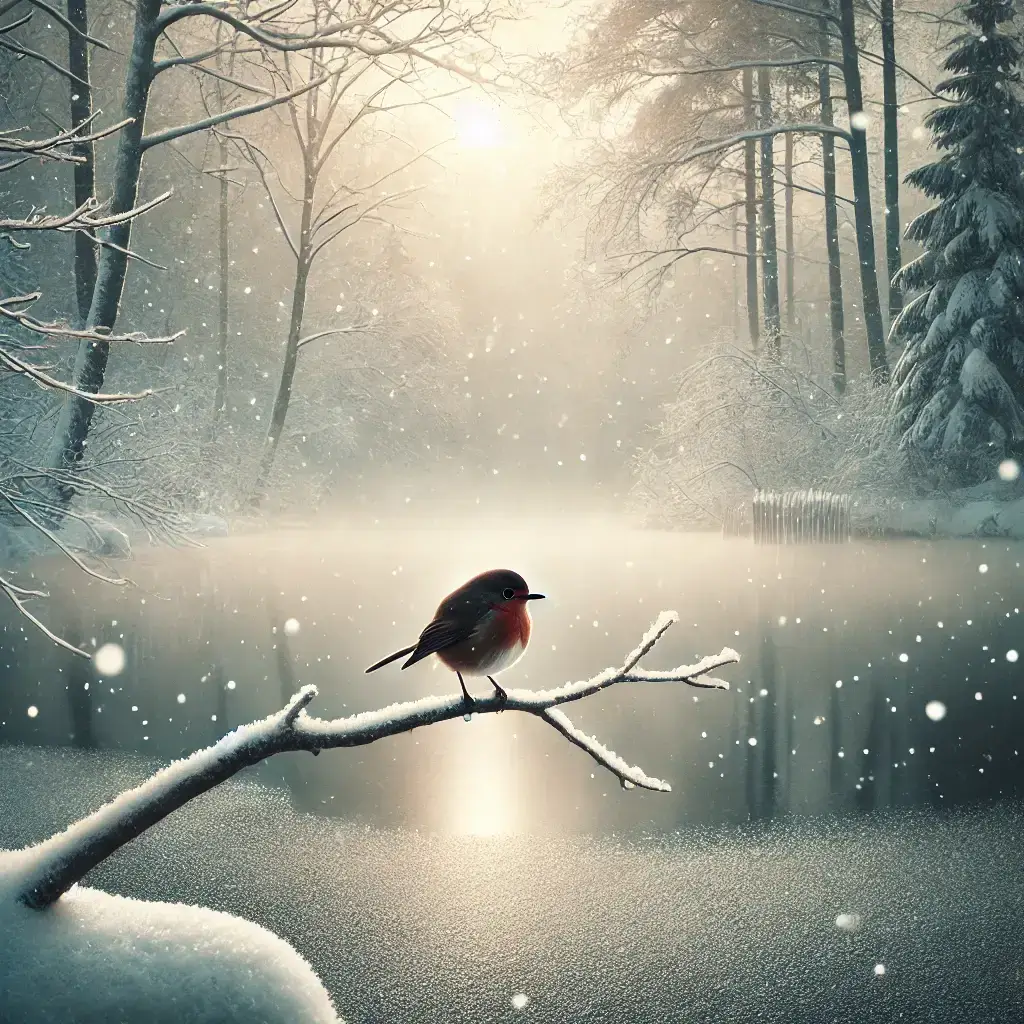I woke up this morning in a melancholy mood. You know the kind of sensation when everything seems a little darker, heavier, and you can’t exactly identify why. I just felt… blue. A little depressed, really. It’s not the first time I’ve observed this kind of winter slump before, particularly following the holidays.
But something clicked this morning when I was meditating: this is winter.
Kind of obvious? I know, right? From the standpoint of Chinese medicine and the Daoist healing arts, however, winter is more than simply shorter days or cooler temperatures. This season has its own energetic rhythm and is the period when our energy naturally shifts inward.
And that inward pull? We’re not in control of it consciously. It happens naturally, of its own accord. Let’s take a closer look at it.
The Energetics of Winter
Winter is connected in Daoist philosophy with the water element, which stands for stillness, introspection, and deep reflection. This is a season for slowing down, conserving energy, and retreating inward—sort of like how bears hibernate, or trees lose their leaves and seem to rest.
This inward energy shift occurs on all levels of being—psycho-emotional, spiritual, as well as physical. It presents for many, including me, as a lot of introspection. It’s not always a gentle process, either. The inward pull of winter can uncover unconscious thoughts and emotions—things we’ve been avoiding or stifling in the corners of consciousness.
To be honest, confronting these hidden aspects of ourselves is not always comfortable.
Many people therefore experience emotional difficulty in the winter months. It’s not only about the frigidity or lack of sunlight (though both factors do have some influence). The natural rhythm of the season essentially forces us examine ourselves, whether we want to or not.
Seasonal Affective Disorder and the Holidays
Seasonal Affective Disorder (SAD), the winter blues some people suffer as the days grow darker and colder, is most likely something you have heard of. Western medicine frequently describes it as the result of reduced sunshine and disturbed circadian rhythms in our bodies.
Although that seems logical, I believe there’s more involved in it. From a Daoist standpoint, SAD might also result from the emotional and spiritual unease brought on by the change in the energy of winter. The inward pull of the season simply makes us more conscious of unresolved feelings and unprocessed experiences.
And here’s an intriguing idea: maybe this is the reason humans developed so many winter holiday customs. Perhaps it went beyond merely honoring religious observances or the harvest. Perhaps the holidays were also a means of diversion from the emotional demands of winter—keeping us occupied with family events, festivities, and traditions rather than sitting with our own thoughts.
Of course this is just a theory. But it makes sense, doesn’t it?
Reframing Winter’s Challenges
So something changed while I was meditating this morning. I came to see that being in a blue mood or feeling introspective at this time of year doesn’t necessarily indicate that something’s wrong with me.
It’s simply how nature intends things.
Winter isn’t a problem to be fixed. This season is one of the phases in the cycle of life. It also serves a function, like every season does. It enables us to slow down, reflect, and reconnect with ourselves.
Once I realized this, my mood started to improve. What I was feeling was simply the energy of the season doing what it always does; it wasn’t a reflection of me being broken or inadequate.
Practical Tips for Embracing Winter
Here are some things that might help if you’re feeling a similar kind of emotional downturn this winter:
- Lean into reflection: Journal, meditate, or set aside some quiet time for self-reflection. Winter is a season for contemplation; hence, let yourself lean into what’s arising without judgment.
- Seek natural light: Spend more time outside or, if it’s too cold, near a large window, particularly in the morning. Natural light, even on cloudy days, gently promotes yang energy thus maintaining your body’s rhythm without upsetting winter’s inward focus.
- Stay warm and nourished: Support your body by keeping warm and eating foods that fit the energy of winter. These include warm soups, stews, and kidney-nourishing foods like black beans, seaweed, and root vegetables.
- Gentle movement: Practice deliberate, gentle workouts including qi gong, walking, or stretching. These movements keep energy flowing and prevent stagnation without pushing your body too hard.
- Create cozy spaces: Create warm areas by lighting candles or spending evening time beside a fire. The delicate glow and warmth support the season’s restfulness, while reflecting the subtle yang energy of sunlight.
You can navigate the challenges of winter without feeling as though you’re going against its flow by embracing its slower pace and concentrating on natural means of balancing your energy.
Final Notes
Though it can be difficult, winter is not something one should be afraid of or fight against. This is a time to slow down, reflect, and reestablish contact with our most inner selves.
And if that sounds awkward, keep in mind that development sometimes begins with discomfort.
This winter, if you feel yourself getting a bit depressed or introspective, remind yourself that these feelings are natural and not indicative of anything wrong with you. Winter invites us to look inside; although that could be difficult, it also presents a chance for healing and rejuvenation.
